Latin America and the Caribbean (LAC)
Overview
Representing the entire continent of South America and the Caribbean Region, this region encompasses geographies ranging from the vast Amazon rainforest to tiny, dispersed islands. With well over half a billion people, it is also home to an impressive array of Indigenous peoples and diversity, although the region has also struggled with the legacy of European colonialism. While LAC includes some of the world’s largest economies (notably Brazil), it also faces a wide variety of development challenges. These include social and economic vulnerability, ever-increasing wealth stratification, political instability, and the threat of climate change, which is especially harmful to island nations.
Projects

- Europe, Latin America and the Caribbean (LAC), South & Southeast Asia, Sub-Saharan Africa (SSA)
- October 2024 - May 2025
- Data Feminism
- Partner(s): UNFPA (Funder), University of Melbourne

- Brazil, Latin America and the Caribbean (LAC)
- November 2024 - January 2026
- Data Feminism, Technology and Democracy
- Partner(s): Align (Advancing Learning and Innovation on Gender Norms) by ODI (Funder), DRPC (Development Research and Projects Center)
Technology-facilitated Gender-Based Violence (TF-GBV) against women in politics is an increasing, global concern for democracies. It is situated within the rising anti-gender and anti-feminist backlash and further aided by resistance from technology companies for greater regulations of their activities and responsibility to prevent and address such violence. This research project is implemented in partnership with Align and seeks to identify how social (gender) norms and other factors shape political parties’ responses to TF-GBV against women in politics in Brazil and what practices can be adopted by political parties to address it and to create a more enabling environment. A partner organization will be conducting similar research in Nigeria.

- Global, Latin America and the Caribbean (LAC)
- September 2023 - Ongoing
- Technology and Democracy
- Partner(s): Eureka
During these 2 hour sessions, we leverage the best of our experience conducting the trilingual Book and Movie Club “Technology Through Feminist Lenses” to conduct an interactive workshop titled “Eureka Moment: Feminism, Culture, and AI to Reimagine Our Futures”. The ultimate goal is to foster critical and transformative dialogue about artificial intelligence (AI) and technology through an intersectional feminist perspective by leveraging the Eureka methodology. The workshop has been presented at several international events, including MozFest 2023, the Code for All Summit 2023, CryptoRave 2024, Fórum da Internet No Brasil (FIB14) 2024, ACM FAccT 2024, and the Global Digital Development Forum (GDDF) 2024.

- Latin America and the Caribbean (LAC), Mexico
- February - June 2023
- Technology and Democracy
- Partner(s): Conexión Migrante, International Center for Journalists (ICFJ) (Funder), PolitiFact, Proceso, The Associated Press, VerificadoMX
To fill the information gap brought on by complex migratory processes, poor institutional communication, and lack of trust in authorities, Latin American migrant communities transiting through Mexico on their way to the USA often resort to the use of social media and instant messaging apps. While sometimes a source of helpful information, these are also polluted with disinformation and scams, ranging from alleged “opening” days/hours of Mexico’s northern border, to fallacious legal advice, to false job and visa offerings. In collaboration with Conexión Migrante, VerificadoMX, PolitiFact and The Associated Press, the DPA team investigated the business models that leverage and finance the disinformation that can put migrants’ lives at risk. The investigation was published by multiple media outlets, including our partner Proceso.

- Argentina, Europe, Kenya, Latin America and the Caribbean (LAC), Mexico, Philippines, Spain, Sub-Saharan Africa (SSA)
- April - September 2024
- Data Feminism, Geographies of Inequalities
- Partner(s): City Hub and Network for Gender Equity - CHANGE (Funder), Open Data Watch
Data-Pop Alliance (DPA), in collaboration with Open Data Watch (ODW), was tasked with creating a pioneering gender data framework for urban environments, commissioned by the City Hub and Network for Gender Equity (CHANGE). This framework was intended for implementation across CHANGE’s network cities, starting with Barcelona, Buenos Aires, Mexico City, Nairobi, and Quezon City as the initial participants. Capitalizing on DPA’s and ODW’s specialized knowledge in data analytics and gender-focused research, the project’s core objective was to provide a robust measurement of gender equity within varied city landscapes. The project’s deliverables included: A comprehensive blueprint outlining the essential requirements and stages for cities to prepare and deploy the framework; The framework itself, featuring specific dimensions and indicators that assessed both the processes and physical form of the cities concerning gender equity; and a specialized data collection tool, complete with training materials, to enable cities to gather and process all necessary data to effectively utilize the framework. This multi-faceted approach ensured that the participating cities were equipped with the knowledge, tools, and methods required to drive meaningful progress in the realm of urban gender equity.

- Latin America and the Caribbean (LAC), Uruguay
- Dates: March 2024 - June 2024
- Data Feminism
- Partner(s): Iniciativa Latinoamericana por los Datos Abiertos ILDA (Funder)

- Latin America and the Caribbean (LAC), Mexico
- June - December 2023, February - December 2024
- Data Feminism
- Partner(s): Abogadas MX (Funder)
Phase 1: DPA, in collaboration with Abogadas MX, led the design and development of the Central Database and Customer Relationship Management (CRM) software for the “Standards for Diversity and Inclusion in Law Firms in Mexico” Program. This included the creation of a survey to collect gender-focused data from law firms. This initiative enabled the organization to systematically gather and manage information from specific law firms about gender equality and the implemented policies, facilitating the generation of recommendations aimed at improving internal policies to address gender inequality issues and promote the mainstreaming of gender perspectives in the legal sector.
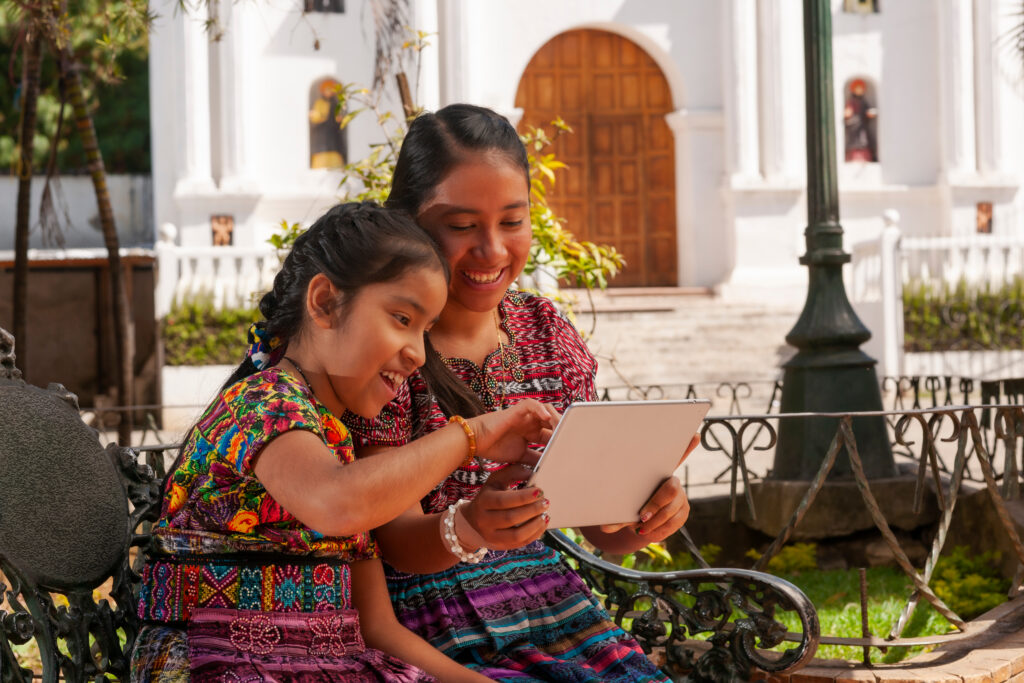
- Latin America and the Caribbean (LAC), South & Southeast Asia, Sub-Saharan Africa (SSA)
- October 2023 - July 2024
- Data Feminism
- Partner(s): Fòs Feminista (Funder)
In partnership with Fòs Feminista, Data-Pop Alliance conducted a nine-month project aimed at strengthening understanding of how youth-friendly approaches are being applied in digital sexual and reproductive health (SRH) interventions across Latin America, Africa, and Southeast Asia. Through a combination of a systematic literature review, five case studies, and a self-assessment survey for Fòs Feminista’s network partners, the project identified key strategies, challenges, and best practices for reaching youth and adolescents through digital technologies such as apps, chatbots, and web platforms.
By critically analyzing existing digital health interventions (DHIs) and their methods for engaging young populations, the project produced actionable recommendations to enhance future initiatives. Special attention was given to assessing digital maturity, integrating intersectional perspectives, and fostering youth-friendly environments to ensure that digital SRH services are inclusive, accessible, and impactful for young users.
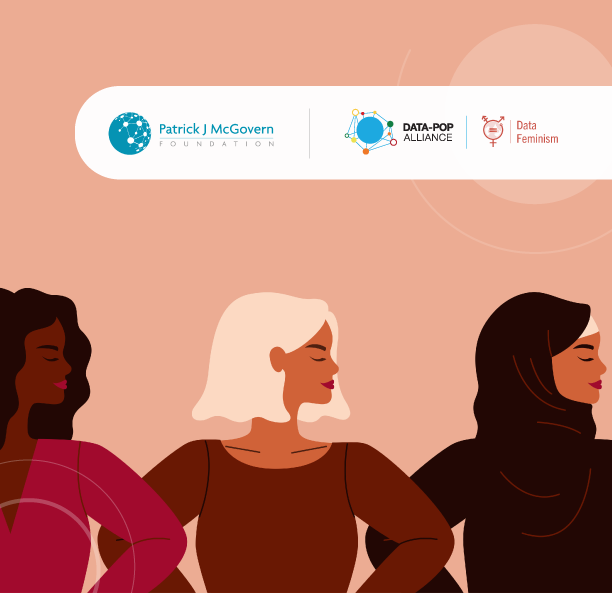
- Partner(s): Patrick J. McGovern Foundation (Funder)
The Patrick J. McGovern Foundation (PJMF) awarded DPA’s Data Feminism Program a twelve-month, $300,000 grant to support our work advancing intersectional, data-driven research, training and advocacy to continue fostering gender equality across Latin America and the Caribbean, the MENA region and Sub-Saharan Africa. In 2023, the grant was renewed for $400,000 to continue supporting existing and new Data Feminism Initiatives, including the Book and Movie Club, “Technology Through Feminist Lenses.”

- Brazil, Latin America and the Caribbean (LAC)
- December 2024 - March 2025
- Technology and Democracy
- Partner(s): Eureka, Instituto da Hora (Funder)
The Book and Movie Club “(Re)Imagining Technologies: Paths to the Future” [(Re)Imaginando Tecnologias: Caminhos para o Futuro] by DPA, Instituto da Hora and Eureka explored how technology shapes our futures through curated materials (in Portuguese), live discussions, and an in-person event.

- Latin America and the Caribbean (LAC), Mexico
- May - July 2022
- AI and Statistics for the SDGs
- Partner(s): EQUIS Justicia para las Mujeres (Funder)
DPA developed a four week training on qualitative and quantitative analysis and tools for the members of the Mexican CSO EQUIS Justicia para las Mujeres. The training included different sessions, with online and in-person guided tutorials conducted by DPA facilitators. In addition to showcasing different techniques and tools for data analysis, use cases based on real projects from the organization were leveraged to discuss specific topics. The content was divided into two workshops: the first focused on practical techniques and tutorials on data collection, storage and processing; and the second focused on how to incorporate basic notions of statistics, database reading, and use of visualizations.
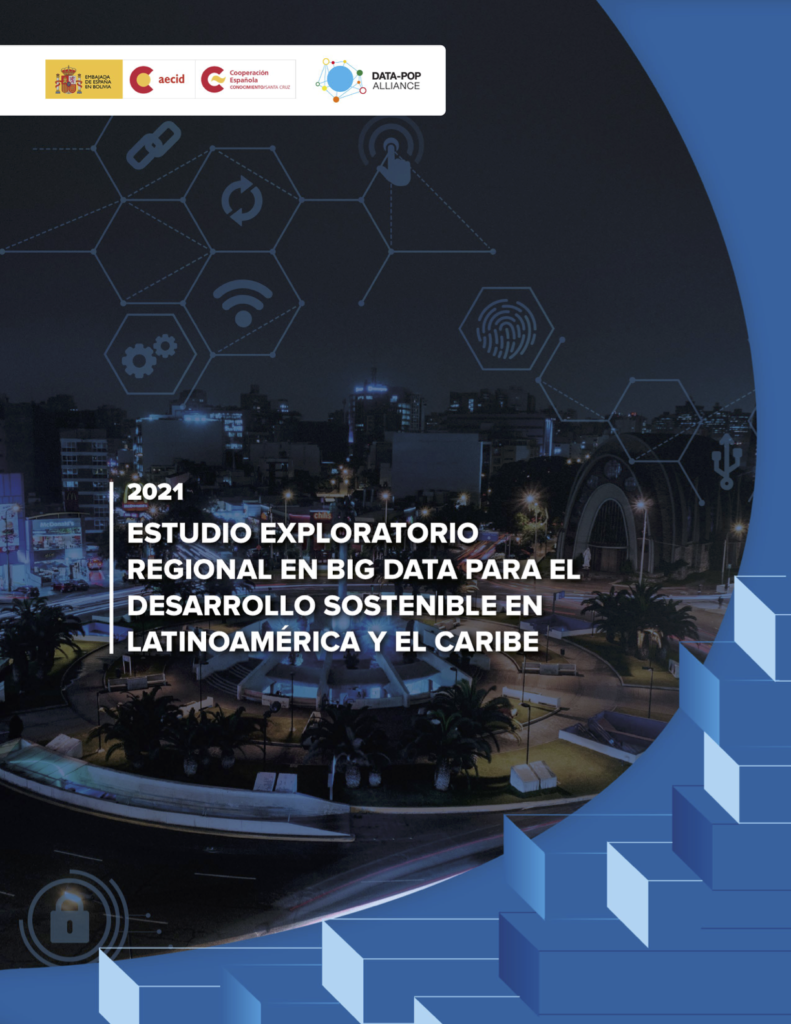
- Bolivia, Dominican Republic, El Salvador, Guatemala, Latin America and the Caribbean (LAC), Peru
- January 2020 - March 2023
- AI and Statistics for the SDGs
- Partner(s): Agencia Española de Cooperación Internacional para el Desarrollo (AECID) (Funder), Centro de Formación de la Cooperación Española en Santa Cruz, Bolivia
This project developed with the support of the Spanish Agency for International Development Cooperation (AECID), strengthened the technical capacities of government officials in Latin America and the Caribbean to take advantage of Big Data for sustainable development and official statistics. During the first phase of the project, through an exploratory study (see Publication below), we analyzed the current state of the infrastructure, institutional framework, regulatory framework, capacities and use cases of Big Data for the generation of public policies in 5 LAC countries: Bolivia, Dominican Republic, El Salvador, Guatemala and Peru.
The second phase focused on developing four capacity building workshops between June 2022 and March 2023.
- Introduction to Big Data for Sustainable Development
- Big Data and Poverty Analysis for Sustainable Development
- Big Data and Health Analysis for Sustainable Development
- Big Data, Security and Violence for Sustainable Development
This training itinerary provided participants with a comprehensive knowledge of the key concepts, the necessary tools and the main challenges of Big Data for sustainable development, with a special emphasis on the applicability of these data sources for statistical purposes.

- Global, Latin America and the Caribbean (LAC)
- May - August 2024
- Data Feminism, Technology and Democracy
- Partner(s): Catherine D’Ignazio, Data Against Feminicide Project, Data Feminism Network (DFN), Eureka, MIT Data + Feminism Lab, MIT Press (Funder)
“Counting Femicide with Catherine D’Ignazio”, a multilingual Book Club supported by MIT Press, explored data activism and gender-based violence through the book “Counting Femicide: Data Feminism in Action“, by Catherine D’Ignazio. Featuring eight live sessions with the author, it brought together over 500 participants worldwide.
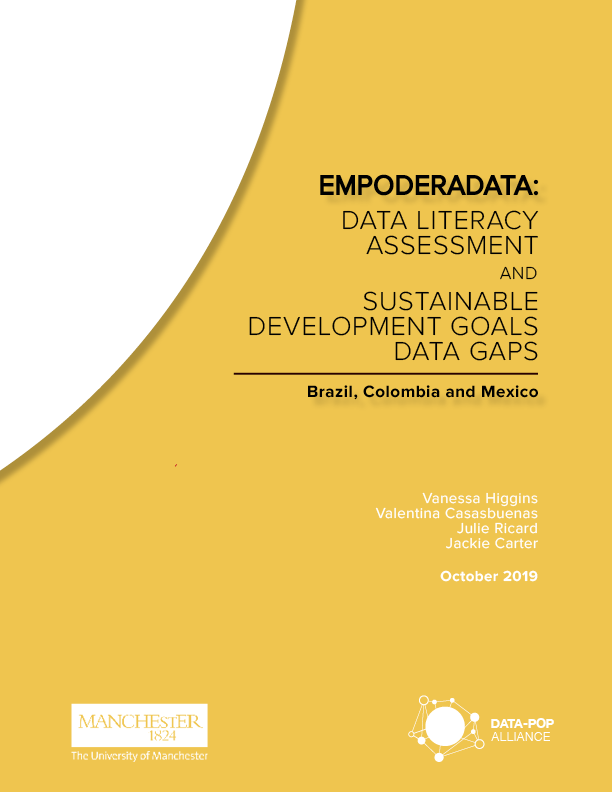
- Brazil, Colombia, Latin America and the Caribbean (LAC), Mexico
- January - June 2019
- AI and Statistics for the SDGs
- Partner(s): University of Manchester (Funder)
EmpoderaData built upon the success of the “Quantitative Step” (Q-Step) program, which was developed as a strategic response to the shortage of quantitatively-skilled social science graduates in the United Kingdom. Together, University of Manchester and Data-Pop Alliance expanded upon the program’s excellent results, exploring this model in the Global South (specifically in Mexico, Brazil and Colombia) as the “EmpoderaData Project”. This initiative aimed to promote a virtuous cycle of social transformation by fostering data literacy skills applied to addressing our society’s most pressing issues within the framework of the Sustainable Development Goals (SDGs).
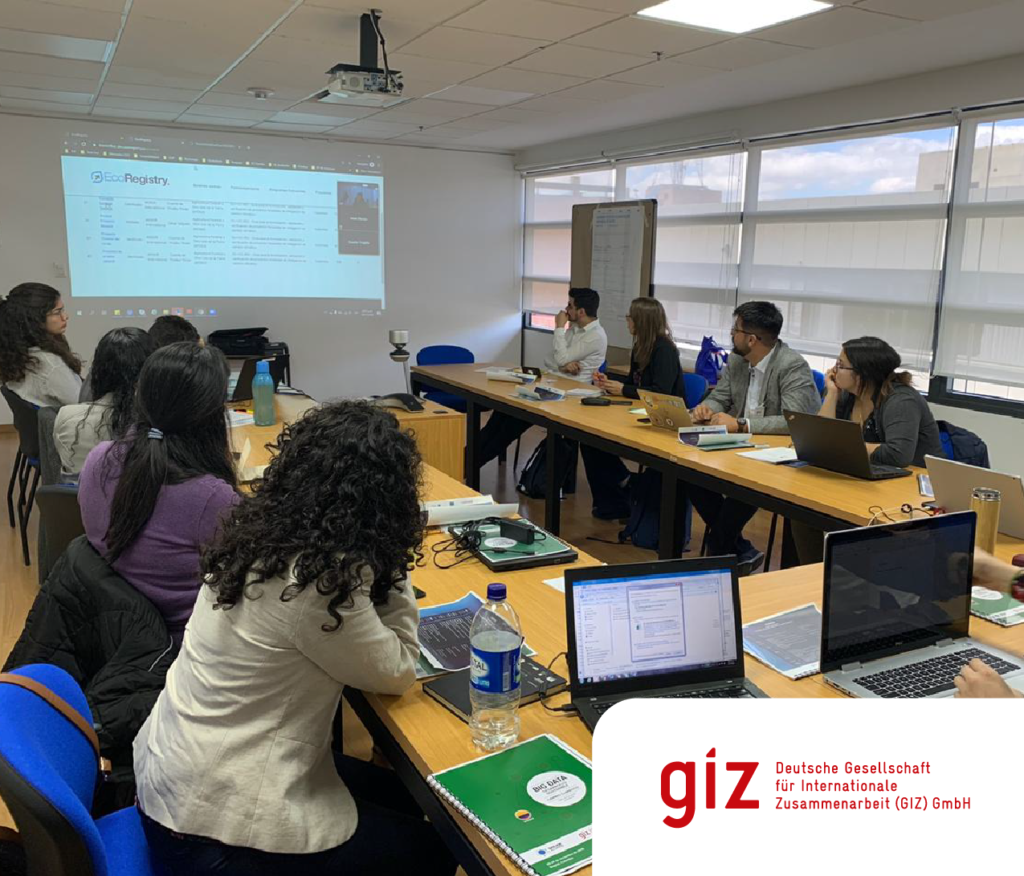
- Partner(s): GIZ (Funder), GIZ Colombia
This series of workshops organized by Data-Pop Alliance, in coordination with GIZ and GIZ Colombia, addressed key terms, necessary tools, and challenges in the Big Data and sustainable development landscape, focusing on the applicability of these information sources in projects related to climate change adaptation and mitigation. This in-person workshop provided an introduction to the “3 C’s of Big Data” as a basis for the development of a Project Lab, enabling participants to incorporate new sources of information in the development of climate change projects.
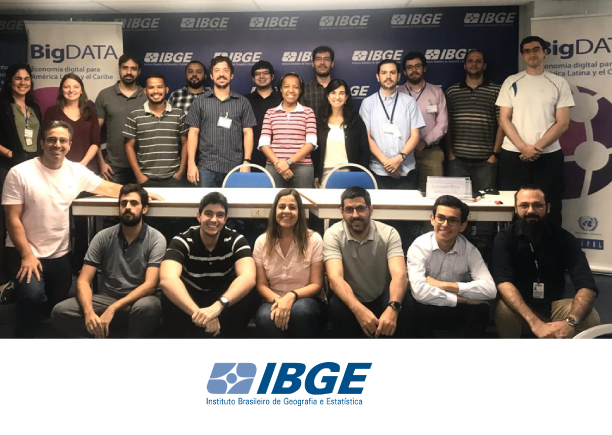
- Partner(s): Brazilian Institute of Geography and Statistics (IBGE) (Funder), United Nations Economic Commission for Latin America and the Caribbean (ECLAC)
In November 2019, Data-Pop Alliance, in partnership with ECLAC and the Brazilian Institute of Geography and Statistics (IBGE), conducted its first technical workshop in Rio de Janeiro, tailored specifically to the needs of the staff at IBGE. The goal was to help them to build and strengthen internal capacities to leverage web data collection and analysis in their projects, specifically by delving into web scraping and API’s interaction techniques. The workshop emerged as part of the broader training program carried out with ECLAC in the Latin America and Caribbean region: “Big Data for Measuring the Digital Economy”.

- Partner(s): Citizens Crime Comission, Fondazione Bruno Kessler, Harvard Humanitarian Initiative, Inter-American Development Bank (Funder), MIT Media Lab
Increasingly, data and information are being promoted as powerful tools to understand and prevent crime and violence. However, there are key questions that remain largely unanswered: Why is crime clustering in certain neighborhoods? Why do certain individuals turn to crime while others do not?
Ciudata Segura, leveraging sophisticated analyses of urban crime and violence in cities across Latin America and the Caribbean, has examined the local determinants of crime and the role of impunity and social networks in driving criminal behavior. This analysis involves collecting and analyzing both official and non-official data sources to produce public policy recommendations and action plans.
Funded by the Inter-American Development Bank (IDB) and developed in collaboration with the Harvard Humanitarian Initiative (HHI), Fundazione Bruno Kessler (FBK), the MIT Media Lab, and the Citizens Crime Commission, the project began in 2017. It has resulted in close coordination with local governments and stakeholders, and led to the creation of roadmaps, data audits, and capability assessments to determine further interventions. Additionally, the project has produced research instruments for analysis, including a series of surveys and the creation of a visualization tool.
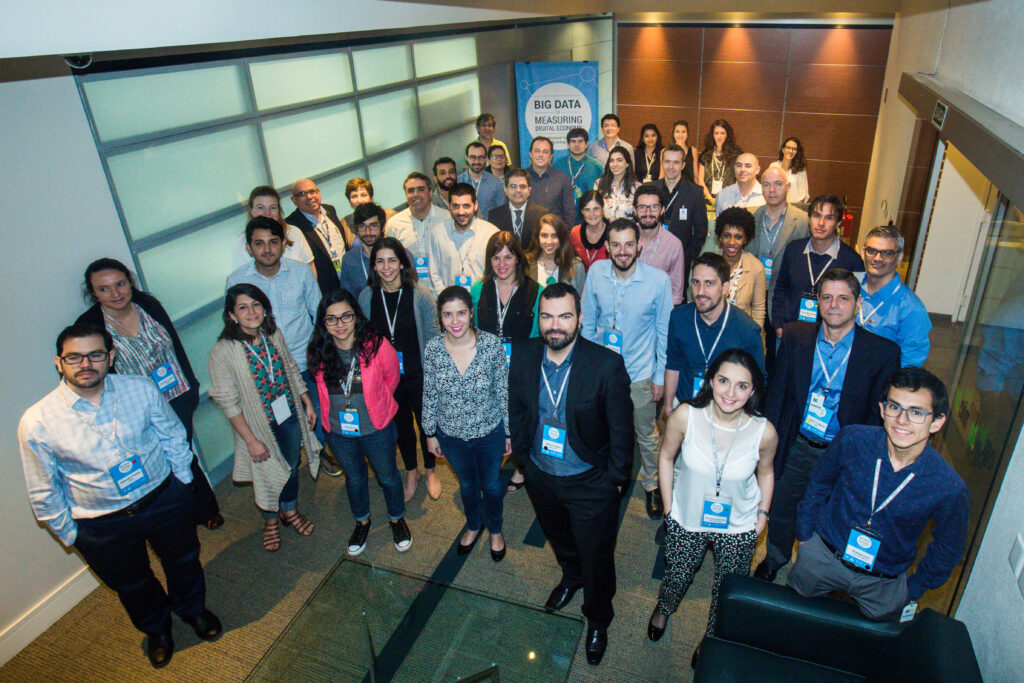
- Partner(s): Cetic.br, DANE, Mexico's National Digital Strategy Program, MIT Sloan School of Management, United Nations Economic Commission for Latin America and the Caribbean (ECLAC) (Funder)
In partnership with the United Nations Economic Commission for Latin America and the Caribbean (ECLAC), DPA offered a series of workshops focused on “Big Data and the Digital Economy” in the Latin American and Caribbean region. These workshops were designed for development practitioners, policymakers, and researchers. Five editions were delivered in: Santiago de Chile (March 2016), São Paulo (September 2017) —in partnership with Cetic.br—, Mexico City (October 2017) —in collaboration with the National Digital Strategy (EDN) program and the MIT Sloan School of Management—, Santo Domingo (April 2019), and Bogotá (May 2019) —in partnership with DANE.
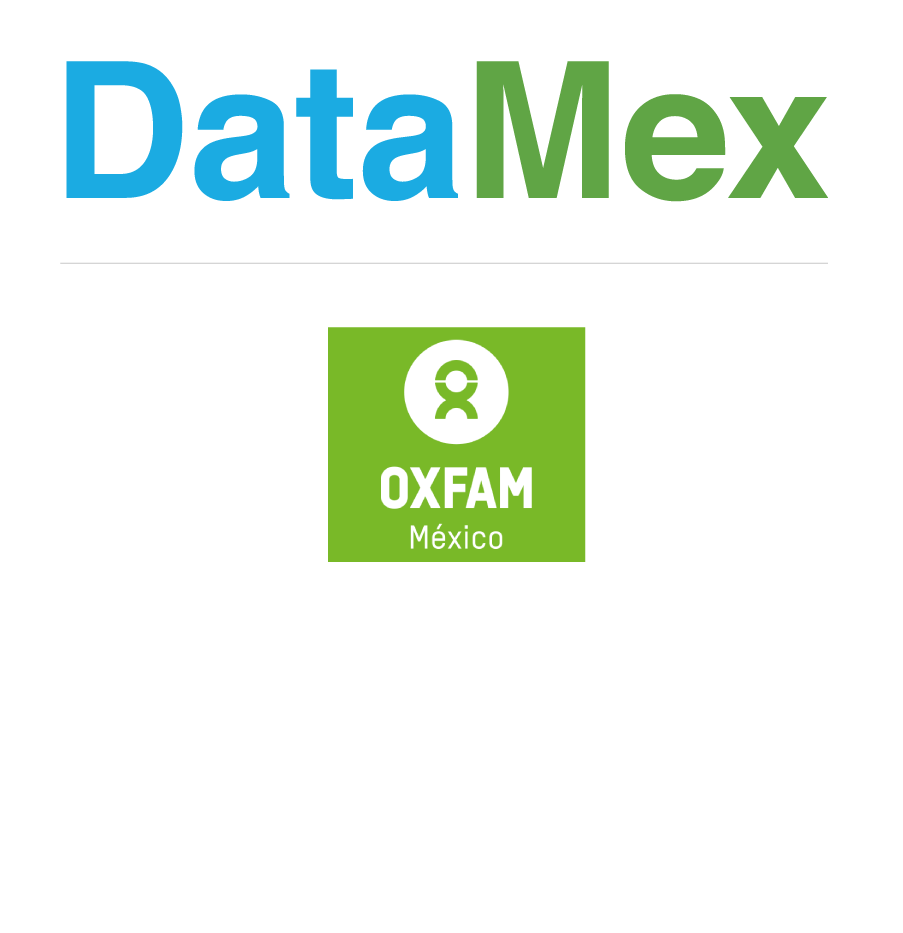
- Partner(s): Oxfam, Oxfam Mexico (Funder)
Data-Pop Alliance and Oxfam México formed a partnership through “DataMex”, with the goal of advancing research and the application of Big Data for sustainable development in Mexico. This agreement, signed in late 2018, has since led to a consultancy and scoping study to identify the areas in which Big Data could be employed to better understand inequalities that have not been analyzed in depth. The resulting project was “Mundos Paralelos“, which focused on areas lacking in understanding and new perspectives that could provide critical insights into the work of Oxfam Mexico.

- Partner(s): Agence Française de Développement - AFD (Funder), Cloud to Street, Flowminder, Harvard Humanitarian Initiative, MIT Media Lab, Overseas Development Institute
Four research papers were developed in collaboration with and funded by the French Development Agency (AFD) between 2016 and 2019 as part of a joint program with Data-Pop Alliance and research partners, titled “Strengthening the Evidence-Base for Leveraging Big Data to Address Global Development Challenges”. This paper, “Characterizing and Analyzing Urban Dynamics in Bogota”, utilized open data and mobile phone records to identify physical characteristics and socioeconomic conditions in the city which have an impact on crime proliferation. The results indicated that urban diversity and natural surveillance theories play a significant role in the proliferation of crime, and this knowledge can be exploited in urban planning to prevent crime. Key research partners included Fundazione Bruno Kessler (FBK) and the MIT Media Lab.
